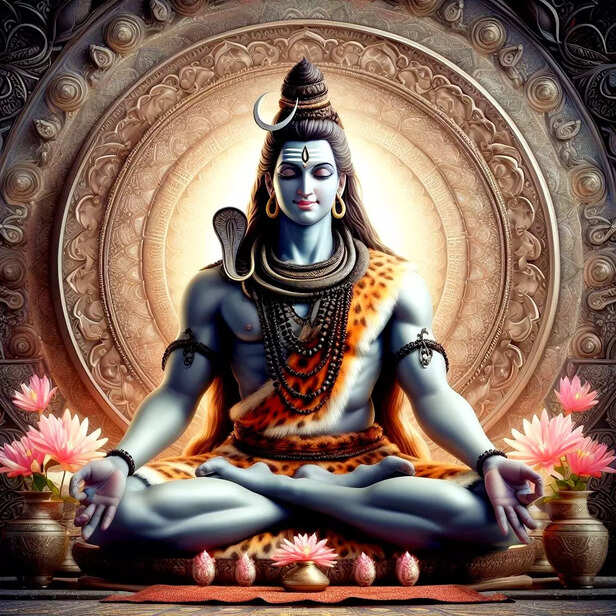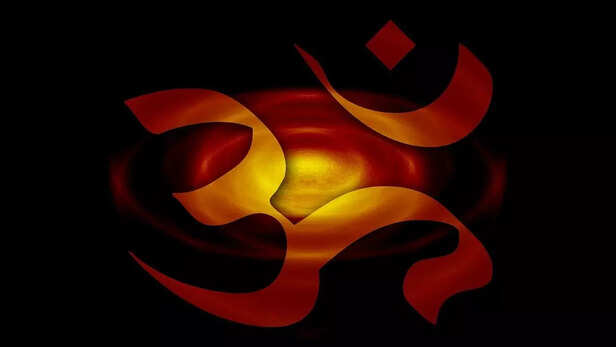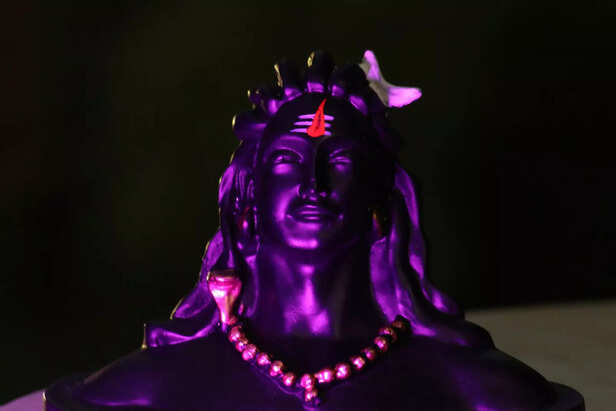Why Some People Just Say Nama Shivaya, Without the ‘Om’
Riya Kumari | Jul 29, 2025, 22:49 IST
Shiva
( Image credit : Pixabay )
We’re living in a time where mantras have become hashtags. Where sacred sounds are printed on tote bags and whispered over soy lattes. But for something as ancient and potent as Namah Shivaya, reducing it to a chant for "peace and positivity" is like using fire to warm soup, it works, but it misses the point entirely.
Are we reciting the mantra as a sound, or are we living it as a path? Even more surprising, did you know that in some of the oldest Shaiva scriptures, the mantra doesn’t even begin with “Om”? That’s right. The real powerhouse, the one passed down in the deepest layers of Shaivism, is just five syllables: Na – Ma – Shi – Va – Ya. No prefix. No flourish. No “Om.” And once you understand why, once you feel why, you may never chant the same again.
WHAT ‘NAMA SHIVAYA’ ACTUALLY MEANS

Let’s be clear: this isn’t about semantics. It’s about direction. Because while Om is a cosmic vibration representing the entirety of existence, from creation to preservation to dissolution, Nama Shivaya is a direct offering of the self to Shiva.
This is not worship from a distance. This is identity dissolving into infinity.
‘OM’, REVERED, BUT NOT ALWAYS REQUIRED

“Om Namah Shivaya” sounds whole. Poetic. Reverent. And in many devotional traditions, especially Bhakti, it’s chanted that way with full sincerity. There’s nothing wrong with it. In some Shaiva traditions, especially Agamic and Siddhantic schools, 'Om' is seen as optional or secondary to the core mantra Namaḥ Shivaya Especially in Rudra-centered traditions like Shaiva Siddhanta, the power lies in the core five syllables. Not in adding layers to them.
THE PURPOSE OF DISSOLUTION

Our problem isn’t that we chant ‘Om Namah Shivaya’. Our problem is that we chant anything without understanding what it’s meant to do. Nama Shivaya is not a mantra for manifestation. It’s not asking for things to be added to your life.
A MANTRA FOR TODAY’S WORLD

In today’s hyper-connected, hyper-identified life, where everything is curated, your feed, your mood, your spirituality, the idea of dissolving the ego sounds outdated, maybe even unnecessary. But it isn’t. It’s urgent. The more we build identities based on outer definitions, roles, work, belief systems, tribes, the more we forget the stillness that exists beyond them.
POWER OF NAMAH SHIVAYA
Different lineages emphasize different versions; Bhakti traditions favor Om Namah Shivaya, while Siddhantic and yogic paths may use Namaḥ Śivāya alone for its elemental and meditative purity. ‘Om’ is sacred. But Nama Shivaya, in its purest form, is like fire with nothing left to burn. It’s Shiva without ornaments. Truth without decoration. To chant it with full awareness is to stand naked before the infinite, offering not your desires, but your self. So yes, go ahead. Say ‘Om Namah Shivaya’ when it flows. But also, try just Nama Shivaya. Not like a word. Like a release. Say it not to feel spiritual, but to remember what you are beneath everything the world told you to be.
Because in the end, when all the sound ends, only Shiva remain
WHAT ‘NAMA SHIVAYA’ ACTUALLY MEANS

Shiv
( Image credit : Pixabay )
Let’s be clear: this isn’t about semantics. It’s about direction. Because while Om is a cosmic vibration representing the entirety of existence, from creation to preservation to dissolution, Nama Shivaya is a direct offering of the self to Shiva.
- Na – Earth (Prithvi)
- Ma – Water (Jala)
- Shi – Fire (Agni)
- Va – Air (Vayu)
- Ya – Space (Akasha)
This is not worship from a distance. This is identity dissolving into infinity.
‘OM’, REVERED, BUT NOT ALWAYS REQUIRED

Om
( Image credit : Pixabay )
“Om Namah Shivaya” sounds whole. Poetic. Reverent. And in many devotional traditions, especially Bhakti, it’s chanted that way with full sincerity. There’s nothing wrong with it. In some Shaiva traditions, especially Agamic and Siddhantic schools, 'Om' is seen as optional or secondary to the core mantra Namaḥ Shivaya Especially in Rudra-centered traditions like Shaiva Siddhanta, the power lies in the core five syllables. Not in adding layers to them.
- Why? Because Om is the sound of creation. But Shiva is not creation. Shiva is what remains after it. He is the silence after the sound.
THE PURPOSE OF DISSOLUTION

Mahadev
( Image credit : Pixabay )
Our problem isn’t that we chant ‘Om Namah Shivaya’. Our problem is that we chant anything without understanding what it’s meant to do. Nama Shivaya is not a mantra for manifestation. It’s not asking for things to be added to your life.
- It’s a mantra for removal.
- Remove illusion (Maya).
- Remove ego (Ahamkara).
- Remove identity clinging to form.
- Remove the false idea that you are the doer.
A MANTRA FOR TODAY’S WORLD

Shiva ji
( Image credit : Unsplash )
In today’s hyper-connected, hyper-identified life, where everything is curated, your feed, your mood, your spirituality, the idea of dissolving the ego sounds outdated, maybe even unnecessary. But it isn’t. It’s urgent. The more we build identities based on outer definitions, roles, work, belief systems, tribes, the more we forget the stillness that exists beyond them.
- That’s where Nama Shivaya takes us. Each chant is not a performance. It’s a quiet demolition. Each repetition: a step backward from what is false and toward what is timeless.
POWER OF NAMAH SHIVAYA
Because in the end, when all the sound ends, only Shiva remain
